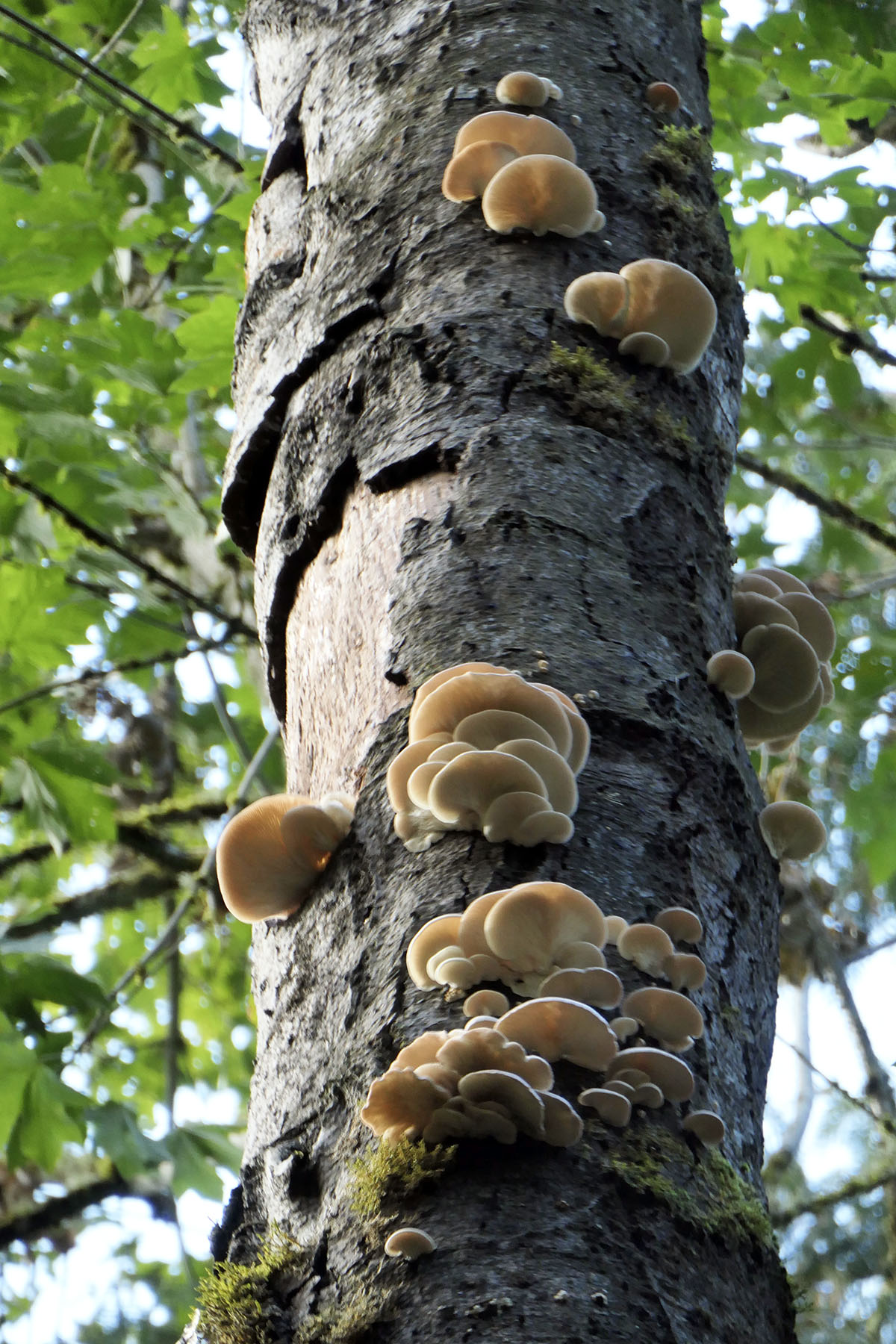Before we get to today’s musings, here is an urgent request (and please share the information.)
With the grocery shelf shortages, please remember NOT to buy WIC marked items. (Special Supplemental Nutrition Program for Women, Infants, and Children (WIC) I think we used to call them food stamps.) The people who use WIC benefits to get their food are not allowed to switch to other brands or types. When those items are gone (usually labeled on the shelves) people go hungry.

———————————————————
Mushrooms
by Sylvia Plath (1932 – 1963)
Overnight, very Whitely, discreetly, Very quietly
Our toes, our noses Take hold on the loam, Acquire the air.
Nobody sees us,
Stops us, betrays us;
The small grains make room.
Soft fists insist on Heaving the needles, The leafy bedding,
Even the paving.
Our hammers, our rams, Earless and eyeless,
Perfectly voiceless,
Widen the crannies, Shoulder through holes. We
Diet on water,
On crumbs of shadow, Bland-mannered, asking
Little or nothing. So many of us! So many of us!
We are shelves, we are Tables, we are meek, We are edible,
Nudgers and shovers In spite of ourselves. Our kind multiplies:
We shall by morning Inherit the earth.
Our foot’s in the door.

Yes, this poem was actually used by the Oklahoma Ag in the Classroom, a program of the Oklahoma Cooperative Extension Service, the Oklahoma Department of Agriculture, Food and Forestry and the Oklahoma State Department of Education to teach about mushrooms. (Ref.) Together with an instruction page on the biology of mushrooms and how they grow.

No, this poem is not really all about mushrooms. Some see it as a gender metaphor, a feminist allegory about the fate of women kept small in a misogynist world, asking little or nothing. Others see it as veiled description of the fate of immigrants.
“… it was really about immigrants making their surreptitious way into a country. Hence ‘Nobody sees us’ because of their movement by night, or ‘We diet on water’ which suggests their impoverished state. The choice of vegetable is witty as these people are a ‘mush’ in the cabins through which they travel and the places they will have to secretly live in.
Plath herself is an immigrant to Britain. But it doesn’t matter if she did or didn’t mean this, the point is that mushrooms seem metaphorical for, for example, women’s rights and many other issues regarding the powerful and the powerless.”



Judge for yourselves…



Here is a lovely analysis of the poem by a biologist and poet who tries to give weight to the voices of nature as much as those of women who might try to be seen through the lens of the verses. Worth a short read.
All photographs were taken last week in my immediate vicinity. Fall has arrived.

Music today is recommended by no other than the scientists from Johns Hopkins University. Here is the link to their work and playlist when trying to figure out the effects of psilocybin (shrooms!) on patients living with depression.(carefully tailored to ascent, peak, descent of the experience.) I chose the Gorecki piece since I’ve always liked it. I think Sylvia Plath would have approved.
